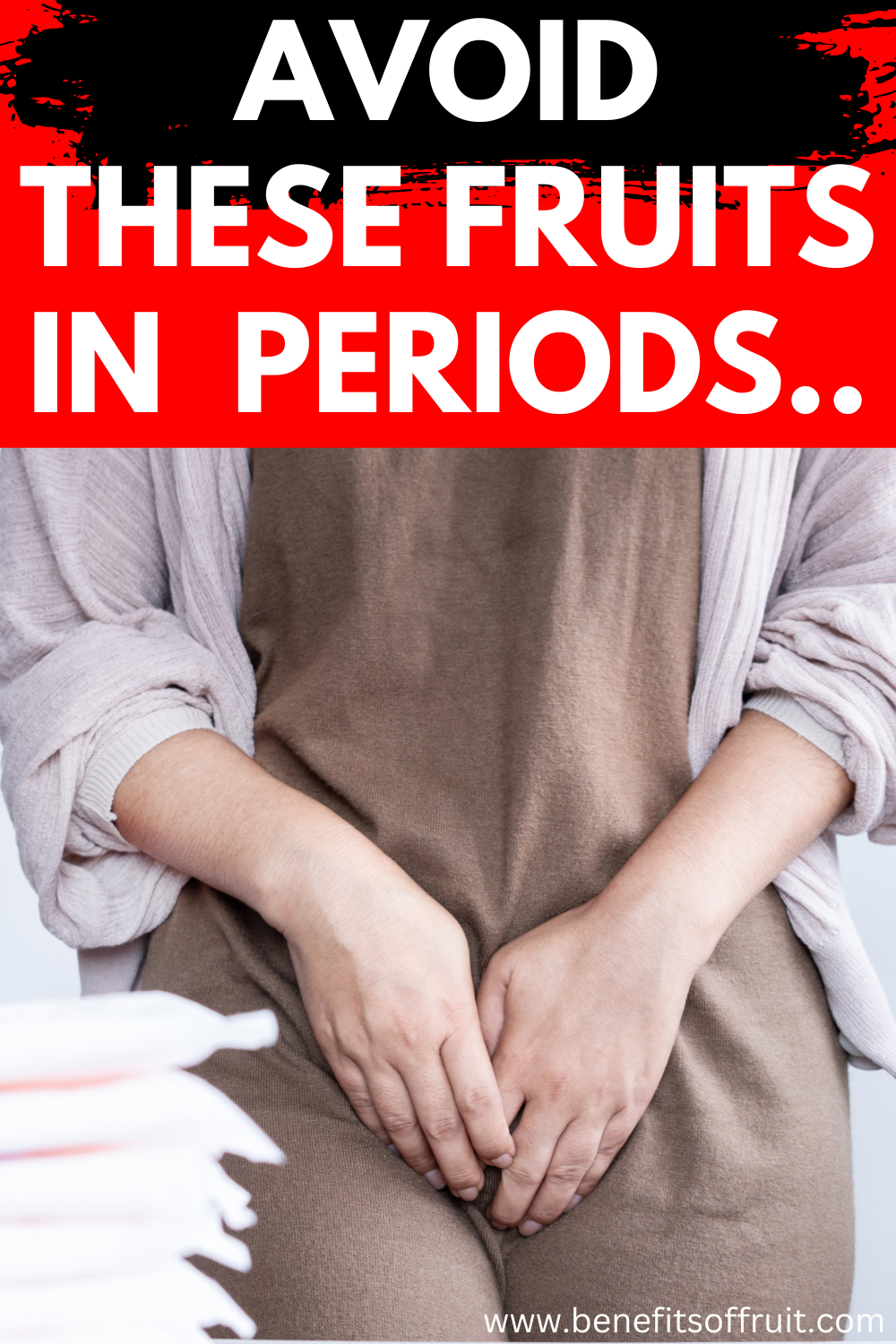Menstruation is a natural part of a woman’s life, but it can come with a variety of uncomfortable symptoms, including bloating, cramps, and mood swings. While there’s no one-size-fits-all remedy, dietary choices can significantly influence how you feel during your period. Although fruits are generally considered a healthy part of any diet, certain types can exacerbate menstrual symptoms. In this blog post, we’ll explore which fruits to avoid during your period to help alleviate discomfort and promote better menstrual health.
The Role of Diet in Menstrual Health
Diet plays a crucial role in managing the physical and emotional symptoms that accompany menstruation. Specific foods can either alleviate or worsen symptoms such as cramps, bloating, and even mood fluctuations. For instance, foods high in salt can increase water retention and bloating, while caffeine can intensify cramps. On the other hand, fruits, which are rich in vitamins and minerals, are often recommended for a balanced diet. However, not all fruits are beneficial during your period. Understanding which fruits to avoid can make a significant difference in your menstrual comfort.
Fruits to Avoid During Your Period
Citrus Fruits: Lemons, Oranges, Grapefruits
Citrus fruits are commonly known for their high vitamin C content, but they might not be the best choice during menstruation. These fruits can increase stomach acidity, which can lead to gastrointestinal discomfort and exacerbate abdominal cramps. For those who already suffer from sensitive stomachs or acid reflux during their period, citrus fruits might make these symptoms worse. Instead, opt for fruits like melons or bananas, which are gentler on the stomach and can help maintain hydration.
High Sugar Fruits: Mangoes, Grapes, Cherries
Fruits high in sugar can have a more subtle impact on menstrual symptoms. Sugar can influence hormonal fluctuations and potentially lead to an increase in menstrual cramps. The quick spike in blood sugar levels followed by a rapid drop can also affect your mood, making you feel more irritable or anxious. Therefore, during your period, it might be wise to limit intake of fruits like mangoes, grapes, and cherries. Consider substituting these with fruits that have a lower glycemic index, such as apples or pears, which provide a more stable energy release.
Very Fibrous Fruits: Pineapple, Some Apples
Fiber is a crucial element of a healthy diet, but excessive intake during your period can cause bloating and gas, leading to additional discomfort. Fruits like pineapple and certain varieties of apples are very high in fiber. While pineapple also contains bromelain, an enzyme that is thought to help with inflammation and aid digestion, its high fiber content might offset these benefits by contributing to bloating during menstruation. Opting for cooked fruits, or blending fruits into a smoothie, can make them easier to digest, which is a gentler option for managing menstrual symptoms.
Unripe Fruits: Green Bananas, Unripe Papaya
Unripe fruits, such as green bananas and unripe papayas, are known to be difficult to digest and can cause stomach upset. During menstruation, when your body is already prone to digestive issues and cramping, consuming unripe fruits can exacerbate these problems. Green bananas, for instance, contain high amounts of starch that can cause gas and bloating. Ripe fruits, on the other hand, are softer and contain more natural sugars, making them easier to digest and less likely to cause discomfort.
Healthier Fruit Alternatives
While certain fruits might exacerbate period symptoms, plenty of others can be beneficial. Fruits like bananas are excellent during your period due to their high potassium content, which helps in muscle function and reduces cramps. Watermelon and cucumbers are great for hydration, while berries can provide antioxidants without too much sugar, supporting overall well-being during your menstrual cycle.
Additional Nutritional Tips
Apart from avoiding specific fruits, incorporating foods rich in magnesium, such as almonds and spinach, and ensuring adequate hydration can help alleviate cramps and improve your mood. Maintaining a balanced diet rich in whole grains, vegetables, and lean proteins is also crucial during this time of the month.
Conclusion
Understanding which fruits to avoid during your period can significantly impact your comfort and health. By making informed choices about your diet during menstruation, you can help mitigate some of the discomfort associated with your menstrual cycle. Always listen to your body and consider consulting with a healthcare provider to tailor dietary choices to your specific health needs.
